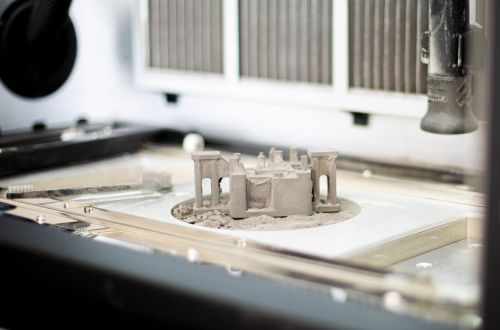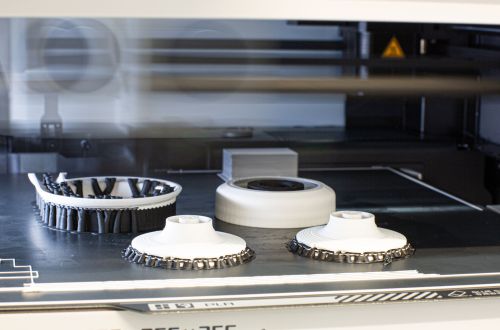
At IMT, we leverage 3D printing to convert ideas into tangible realities. Our expertise lies in the development of high-tech prototypes within the realm of medical technology. We utilize advanced methodologies to deliver dependable, swift, and streamlined results that exceed our customers' expectations.

Our experts provide customized solutions for prototypes using additive manufacturing technologies including SLS and FDM. The development process involves close collaboration with our customers, understanding their distinct needs and challenges, and leveraging our extensive know-how in 3D printing to develop innovative prototypes and devices. This allows us to reduce the complexity of medical technology designs, speed up the prototyping process and reduce the time to market for our customers.
Together with our regulatory specialists, we advise you on choosing materials to ensure functionality, reliability, durability, and biocompatibility.
Technologies used

Selective Laser Sintering (SLS)
SLS offers significant advantages, such as higher precision and uniform mechanical properties (isotropy). With the ability to create more complicated geometries, SLS offers new ways to design medical devices, improving functionality, aesthetics, and performance.

Fused Deposition Modeling (FDM)
FDM offers advantages such as cost efficiency and broad material compatibility, enabling versatile design options and rapid prototyping of robust models. The ability to process a wide range of thermoplastics has expanded the scope of medical device design and improved functionality, durability, and production efficiency.
Benefits of 3D printing in medical technology
Additive manufacturing, or 3D printing, has proven to be highly valuable in the development of medical devices for several reasons:
Using 3D printing to create iterations for verification and validation contributes to the overall efficiency of the development process. Early and frequent testing allows designers to identify potential issues sooner, which leads to improvements in the final product and a reduction in the risk of costly errors or recalls after the product has been brought to market.
Some medical devices require complex geometries and internal structures that are difficult or even impossible to create with conventional manufacturing methods. With 3D printing, these complex designs can be manufactured with ease.
Medical devices often need to be personalized to the specific needs of a patient. With traditional manufacturing methods, this would be a costly and time-consuming process. However, 3D printing allows for high customization at no extra cost or time, as each product is built layer by layer according to digital 3D model data.
Additive manufacturing allows projects to benefit from quick and cost-effective iterations. Traditional manufacturing methods usually require more resources for tooling and setup, especially for complex or customized designs. These requirements are greatly reduced with 3D printing as any design changes can be made quickly in digital models.
Use cases
Reliability of additive manufacturing for medical technology
3D printing is a complementary manufacturing technology for medical devices. On one hand, the technology fulfills all relevant regulatory requirements. On the other hand, a design that is both production- and load-oriented withstands the stresses over the service life. Regarding manufacturing precision, IMT continually explores the limits of 3D printing and stretches the boundaries of what’s possible, by reworking the parts for maximum precision.

Blower for patient ventilators:
With the help of 3D printing, we developed and delivered a critical component for patient ventilators - a blower - in a significantly shorter time. The process allowed us to go from the design stage to the finished product in just four months, which would have otherwise taken a year with traditional manufacturing methods.

Contact
Struggling to find an effective solution to your medical device concepts? Discover the speed and precision of our 3D printing solutions. Contact us today to turn your ideas into tangible prototypes!

Benno Bieri
COO & Head of Business Development


